| Listing 1 - 10 of 27 | << page >> |
Sort by
|

ISBN: 0810910845 9780810910843 Year: 1986 Publisher: New York H.N. Abrams
Abstract | Keywords | Export | Availability | Bookmark
 Loading...
Loading...Choose an application
- Reference Manager
- EndNote
- RefWorks (Direct export to RefWorks)
Theater --- United States --- History --- Theater - United States - History
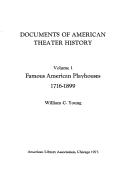
ISBN: 0838901360 0838901379 9780838901373 9780838901366 Year: 1973 Publisher: Chicago American Library Association
Abstract | Keywords | Export | Availability | Bookmark
 Loading...
Loading...Choose an application
- Reference Manager
- EndNote
- RefWorks (Direct export to RefWorks)
Theaters --- United States --- History --- Theater --- Theater - United States - History
Book
Abstract | Keywords | Export | Availability | Bookmark
 Loading...
Loading...Choose an application
- Reference Manager
- EndNote
- RefWorks (Direct export to RefWorks)
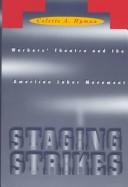
ISBN: 1566395046 9781566395045 Year: 1997 Volume: *2 Publisher: Philadelphia Temple University Press
Abstract | Keywords | Export | Availability | Bookmark
 Loading...
Loading...Choose an application
- Reference Manager
- EndNote
- RefWorks (Direct export to RefWorks)
Workers' theater --- History --- United States --- 20th century --- Workers' theater - United States - History - 20th century
Book
ISBN: 0899506267 Year: 1991 Publisher: Jefferson, N.C. London McFarland
Abstract | Keywords | Export | Availability | Bookmark
 Loading...
Loading...Choose an application
- Reference Manager
- EndNote
- RefWorks (Direct export to RefWorks)
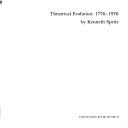
ISBN: 0890620210 9780890620212 Year: 1976 Publisher: Yonkers, N.Y.
Abstract | Keywords | Export | Availability | Bookmark
 Loading...
Loading...Choose an application
- Reference Manager
- EndNote
- RefWorks (Direct export to RefWorks)
Theatrical science --- anno 1900-1999 --- anno 1700-1799 --- anno 1800-1899 --- Theater --- History --- Theater - United States - History
Book
ISBN: 9780199731497 0199731497 Year: 2014 Publisher: Oxford: Oxford university press,
Abstract | Keywords | Export | Availability | Bookmark
 Loading...
Loading...Choose an application
- Reference Manager
- EndNote
- RefWorks (Direct export to RefWorks)
This ambitious collection of essays covers American drama in its entirety—from its inception in colonial America, through its many incarnations in the nineteenth century, to its zenith in the twentieth and early twenty-first centuries. Differentiating itself from other treatments of the genre, the handbook will not only highlight the major works of the twentieth century, but will also attend carefully to earlier works and contexts. The collection's first part will explore the genre's eighteenth-century genesis. William Dunlap's complex, sympathetic portrait of British forces in Andre is counterbalanced by the biting anti-colonial political satire of the nation's first female playwright, Mercy Otis Warren, through an appraisal of her witty, subversive skewering of British loyalists in The Group. The nineteenth century saw the form diversifying with offerings like the antebellum era's reform plays, the melodrama, and the musical-a flowering that was given a new center of action in the growth of Broadway. A full survey of the vexing tradition of minstrelsy and the struggles of Black Americans on the stage provides a transition into the twentieth century.The new approaches to playwriting and performance pioneered by Eugene O'Neill, Susan Glaspell, and the Provincetown Players gave theater a new cachet early in the century through the possibilities offered by naturalism and expressionism. Overtly political content took the stage in the protest plays of Clifford Odets during the Great Depression though in general a more insular realism proved the dominant style, albeit one interrupted by recurring periods of experimentalism. Key moments and artists who defined the later half of the twentieth-century are illuminated through in-depth essays on the scathing indictments of the American dream put forward by Arthur Miller, Tennessee Williams, and Edward Albee; the impact of the countercultural, mixed-race musical Hair; the complex nature of David Mamet's social critique; the energy of experimental, off-Broadway theater; the importance of place and memory in August Wilson's works; and the acute anxiety over the AIDS crisis during the Regan eighties as presented in Angels in America. The volume will conclude with a consideration of what lies ahead for the nation's drama, focusing on the pivotal work of leading lights such as Sarah Ruhl and Suzan Lori-Parks.
American drama --- History and criticism --- Theater --- United States --- History --- American drama - History and criticism --- Theater - United States - History
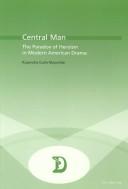
ISBN: 9052019789 9789052019789 Year: 2003 Volume: 03 Publisher: Bruxelles PIE-Peter Lang
Abstract | Keywords | Export | Availability | Bookmark
 Loading...
Loading...Choose an application
- Reference Manager
- EndNote
- RefWorks (Direct export to RefWorks)
Central man traces the evolving dialectic of heroism in modern American drama in the light of the epic tension between the white and the black races. The emergence and subsequent waning of the New England Transcendentalist movement in the nineteenth century provides an apt context for a reappraisal of the heroic impulse in the narrative and dramatic forms that developed in the modern age of American enterprise. Drawing on these theoretical assumptions, this book examines the paradoxical genesis of an indigenous, multicultural and self-reliant voice on the American stage, starting from the beginning of the twentieth century, moving across the tumult of two World Wars and then proceeding on to the Vietnam era in the Sixties. In its refreshingly new approach, Central Man not only demystifies the classical and continental notions of heroism in American drama, but also demonstrates the ironic symbiosis of the historically unequal races of a great nation through and beyond the latter’s inherent conflicts on the stage. The idea of the ‘heroic’ thus vindicates a pragmatic and natural discourse of transcendence at the fundamental level of humanity.
Book
ISBN: 9780300116496 0300116497 030015612X 1282088599 1282352342 9786612088599 9786612352348 Year: 2009 Publisher: New Haven : Yale University Press,
Abstract | Keywords | Export | Availability | Bookmark
 Loading...
Loading...Choose an application
- Reference Manager
- EndNote
- RefWorks (Direct export to RefWorks)
In this brilliant study, Marc Robinson explores more than two hundred years of plays, styles, and stagings of American theater. Mapping the changing cultural landscape from the late eighteenth century to the start of the twenty-first, he explores how theater has-and has not-changed and offers close readings of plays by O'Neill, Stein, Wilder, Miller, and Albee, as well as by important but perhaps lesser known dramatists such as Wallace Stevens, Jean Toomer, Djuna Barnes, and many others. Robinson reads each work in an ambitiously interdisciplinary context, linking advances in theater to developments in American literature, dance, and visual art. The author is particularly attentive to the continuities in American drama, and expertly teases out recurring themes, such as the significance of visuality. He avoids neatly categorizing nineteenth- and twentieth-century plays and depicts a theater more restive and mercurial than has been recognized before. Robinson proves both a fascinating and thought-provoking critic and a spirited guide to the history of American drama.
American drama --- Theater --- History and criticism. --- History. --- History and criticism --- United States --- History --- American drama - History and criticism. --- Theater - United States - History.
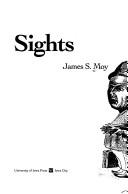
ISBN: 1587291606 9781587291609 0877454272 0877454485 9780877454274 9780877454489 Year: 1993 Publisher: Iowa City University of Iowa
Abstract | Keywords | Export | Availability | Bookmark
 Loading...
Loading...Choose an application
- Reference Manager
- EndNote
- RefWorks (Direct export to RefWorks)
Since the beginning of the Western tradition in drama, dominant cultures have theatrically represented marginal or foreign racial groups as other-different form ""normal"" people, not completely human, uncivilized, quaint, exotic, comic. Playwrights and audiences alike have been fascinated with racial difference, and this fascination has depended upon a process of fetishization. By the time Asians appeared in the United States, the framework for their constructed Lotus Blossom and Charlie Chan stereotypes had preceded them. InMarginal Sights, James Moy dismantles these stereot
| Listing 1 - 10 of 27 | << page >> |
Sort by
|

 Search
Search Feedback
Feedback About UniCat
About UniCat  Help
Help News
News